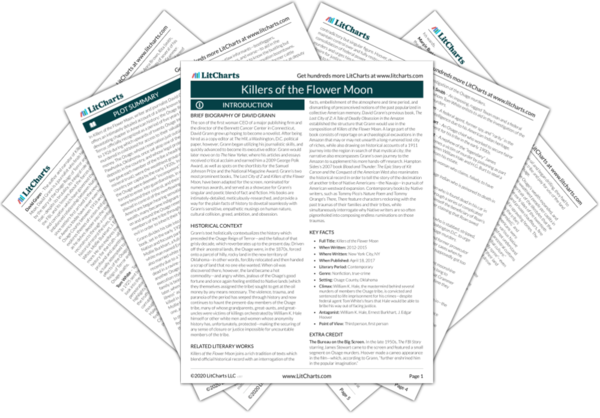AI ToolsNew
Tools to make learning and teaching easier
|
Previous
Chapter 12
|
Killers of the Flower Moon: Chapter 13 Summary & Analysis |
Next
Chapter 14
|


Upgrade to unlock the analysis and theme tracking for all of Killers of the Flower MoonKillers of the Flower Moon!
Get LitCharts A+